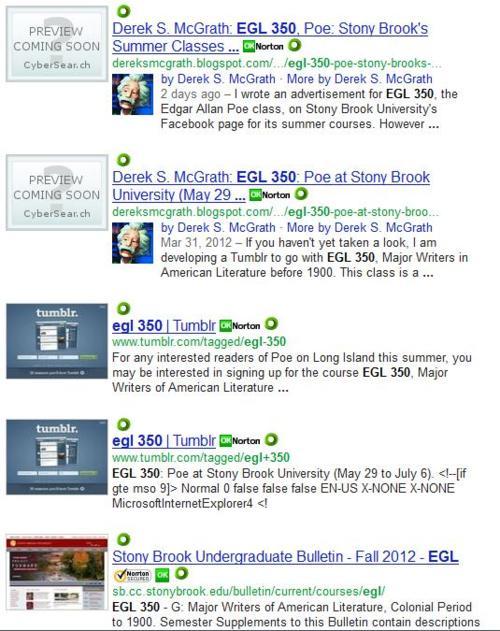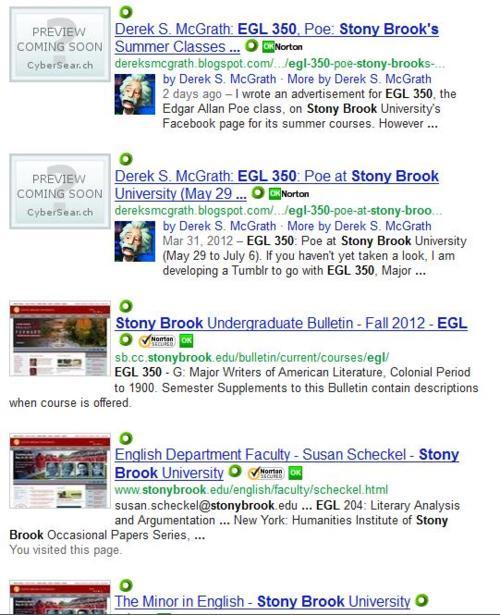[Cross-posted at the Tumblr page for EGL 350, my upcoming summer course on Edgar Allan Poe.]
Huh. Advertising online pays off.

The image above is from a Google search on the phrase "EGL 350." This example shows that some online advertising can push your material up in a huge search engine. I have been advertising this class not only on campus but through Facebook, Google, Twitter, and Tumblr, so I am happy to see the hard work (as hard as organizing this information can be) has paid off. What is really great is that, even when I am not logged into my Google account, pages related to this class on Poe occupy the top entries.
But "EGL 350" is a rather unique phrase, so it would make sense that the number of times I have typed "#EGL350" on Twitter would boost my ranking in Google. And there are many versions of this class taught at Stony Brook University over the previous few years--and probably at other universities in New York and elsewhere.
However, look what happens when I search "EGL 350 Stony Brook":

This summer course at Stony Brook still occupies the top spot. While the Tumblr pages disappear, the Google Plus pages have remained at the top due to how the search engine has modified its results. The benefit for me, then, is that setting up a Plus account and actively posting to it and its accompanying Blogger/Blogspot page gets me more attention to advertise this class. Plus, with the Stony Brook University entries immediately below, I am in good online company--my adviser, Susan Scheckel, is the fourth entry.
Although this news is great for bringing more attention to Poe studies and this summer class at Stony Brook University, the next step is getting students in the seats. I have seen the difference that this kind of online advertisement can accomplish: when I taught my first summer classes at Stony Brook, I used numerous ads posted on campus and through Facebook and Twitter, and as a result, both courses had enough students to run. But last year, with less advertising both online and on campus, I saw those enrollment numbers dip--putting one of my courses in danger of not running.
As well, these search results reveal how online content can bring more attention to literary studies and become integrated with university pedagogy. As I develop this class this summer, I am developing an article related to this class on using popular culture and online content in teaching nineteenth-century works. My hope then is to get a better understanding how these online tools influence course enrollment and successful teaching. Therefore, be on the lookout for some of those fliers I am posting on campus to appear at this blog--the ones that I have created reveal interesting methods for using a range of popular culture icons (Gaiman's The Sandman, Lady Gaga, The Simpsons, and, forgiving the Poe pun, Raven-Symoné) to have these older texts speak to much younger generations of readers.
No comments:
Post a Comment